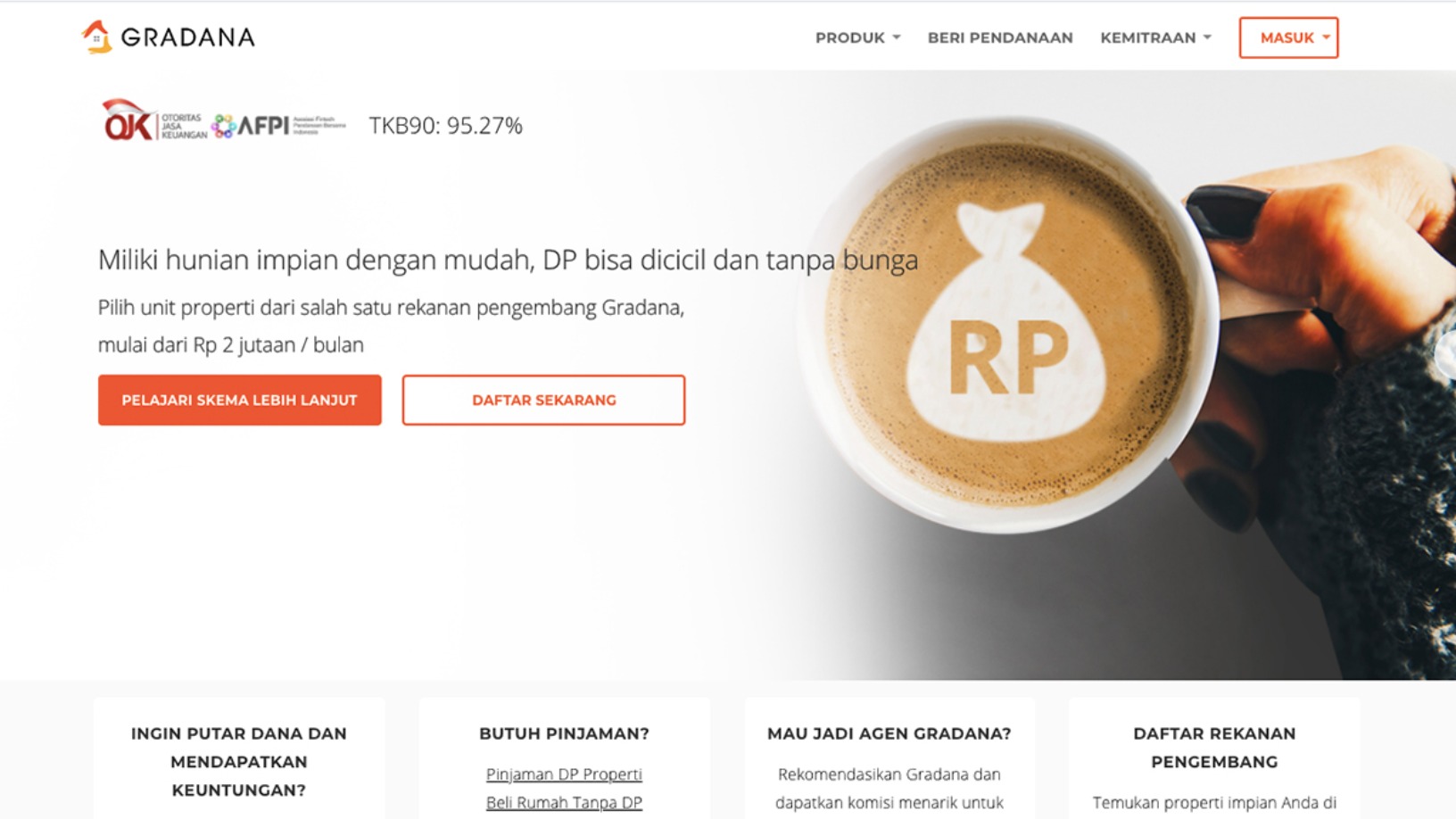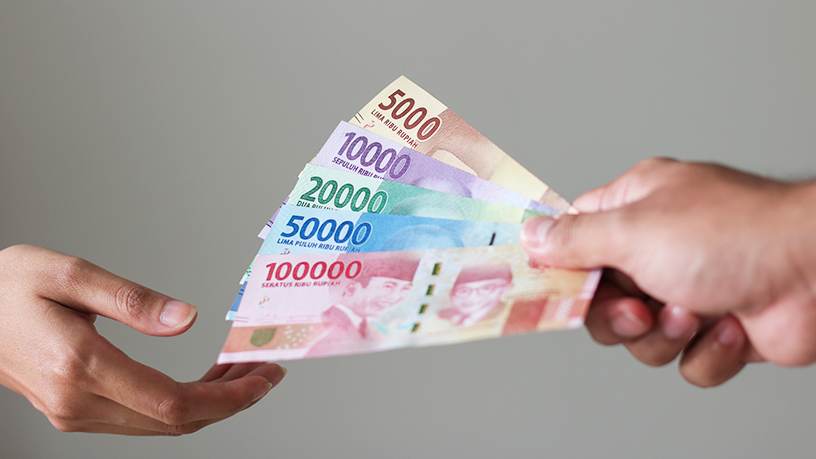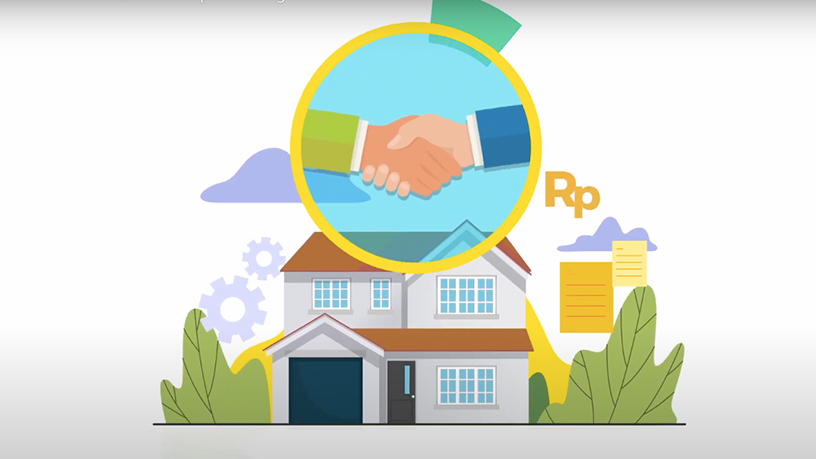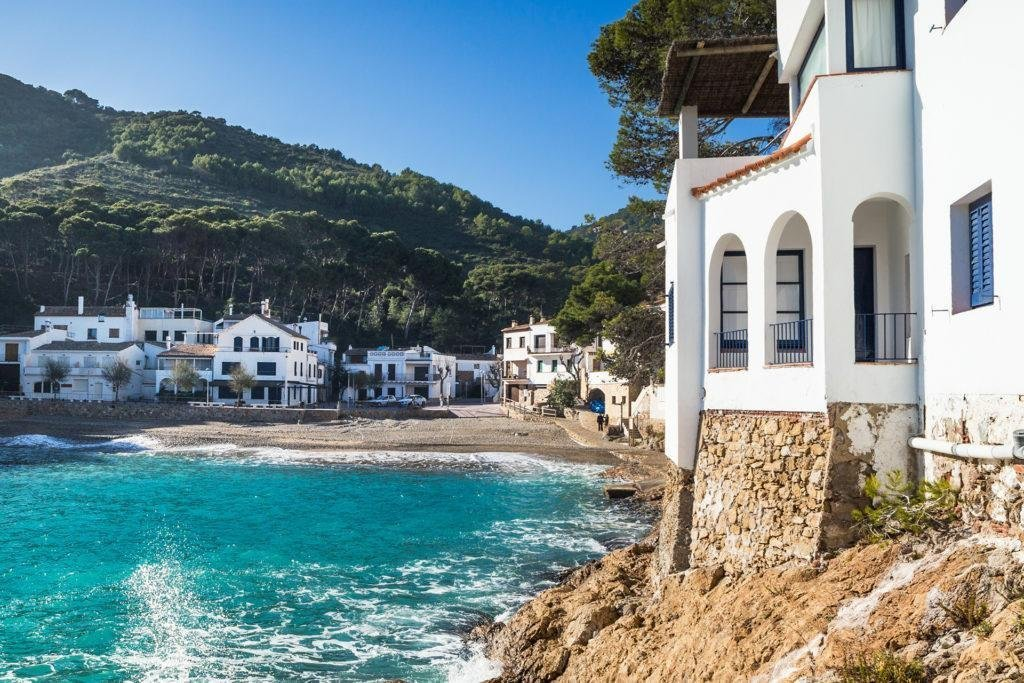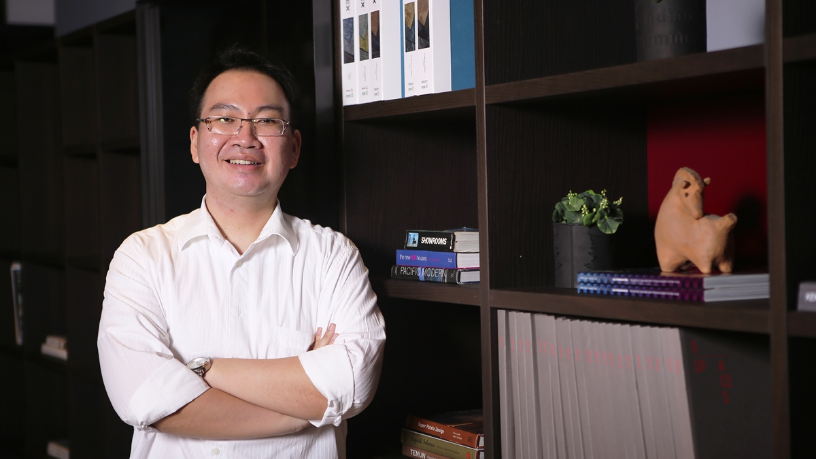Co-founded by serial entrepreneur William Susilo Yunior and real estate veteran Angela Oetama, Gradana wants to make real estate affordable for both investors and young Indonesians that can’t come up with the down payment needed for the purchase of their first homes.
Gradana has created a wide range of products since its launch in December 2017, including mortgage down payment installment loans (GraDP), rental loans (GraSewa), renovation loans (GraRenov), and invoice financing for interior designers and architects in real estate projects (GraKarya).
The startup made its name with its first product, GraDP, connecting borrowers – those wanting to buy a home but have trouble coming up with the down payment to obtain a mortgage, locally known as the KPR, or kredit pemilikan rumah – with lender-investors. The quantum of the down payment varies, depending on the developers and properties.
These lenders "have discovered that this [Gradana] is a better way to invest," Susilo, who also co-founded healthy eating and wellness startup GorryWell, said in an interview.
Indonesia’s benchmark interest rate is currently at a historical low of 3.75% as the central bank cut rates to boost the recession-hit economy hurt by the Covid-19 pandemic. Reflecting that, current savings and fixed deposit rates are around 3–4%. A central bank officer said earlier this month that the low deposit rates have pushed upper middle-class households to seek alternative investments offering higher returns.
Borrowers pay interest rates of 15–24% for down payment loans on Gradana’s platform, based on the cost of the backing property, for example. Gradana fixes the loan size limits at a minimum of IDR 8m and a maximum of IDR 2bn. Generally, interest rates for P2P loans in Indonesia can be very high. Koinworks, for example, charges between 0.75% and 1.67% per month, or up to 20% a year.
Covid woes and pivot
Investors may have flocked to Gradana for its higher returns but still, the pandemic has weighed on the platform, too. Home sales dropped 43.19% in the first quarter of 2020 from a year ago, the start of a falling market reflecting the economic strain and canceled property visits due to social distancing restrictions.
To make up for the fall in property business and to support the healthcare sector during Covid, Gradana expanded to provide financing for companies in the medical sector.

"When Covid hit, we received inquiries from suppliers of medical equipment and hospital beds regarding whether it would be possible to support the sudden surge of demand. They needed to pay in advance to import those items from overseas, [as] their customers, which are hospitals and provincial government health agencies, would only pay when the goods arrive,” said Oetama, who used to head business development at Sinar Mas Land, the real estate arm of Sinar Mas, one of Indonesia’s largest conglomerates.
Gradana earns its income from the service fees it charges lenders, depending on the type and tenor of the loan, while setting aside provisions only for invoice financing loans. The company has plans to charge additional fees, such as for insurance, which is currently included in the service fee.
Gradana has been “EBITDA positive” since the second half of 2020, Oetama said. Its lender base has also grown to over 3,500 users from various parts of Indonesia, including institutional lenders such as multi-finance companies and banks. While it used to focus on property loans in Jakarta and its surrounding areas only, Gradana has expanded to include other major Indonesian cities like Medan, Batam, Surabaya and Bandung. The startup currently has a team of more than 20 staff. The founders declined to reveal the volume of loans processed so far.
In 2019, Gradana topped the Asia Entrepreneurship Training Program, the only P2P fintech startup among the 20 finalists in Switzerland.
Among its other products, GraStrata targets borrowers that seek to buy secondary homes. The product replicates GraDP, the only difference being, it requires all paperwork to be completed for property certification and the building has to be ready for occupancy.
GraRenov lends to those who need money to renovate or refurbish their homes or “ruko”(shophouses), which are often bought as a sparse building to be redesigned for business use, such as restaurants, convenience stores and other forms of shops.
Millennials’ reality
Susilo and Oetama said they started Gradana knowing how many young Indonesians have trouble coming up with the initial capital to buy their first home or start their first business. In particular, Gradana aims to make property ownership more accessible for urban millennials, Oetama said.

Properties marketed to millennials are in fact often beyond reach for many. These include "compact homes" of 40–100sqm in gated neighborhoods and “ruko,” mostly located in commercial areas near residential areas where the first floor is used for business and the second and third as living areas.
Normally priced between IDR 500m and IDR 1bn, these properties tend to be far too expensive for their target buyers, in a country where the average millennial monthly wage is about IDR 2.1m. Another report estimates that millennials make up as much as two-thirds of the target market population.
To borrow via Gradana, aspiring home buyers apply for a loan on its website or via its app. They are required to upload key documents such as their Indonesian ID card, and pay slips and bank statements from the previous three months. They must be Indonesian nationals, no older than 45 years, and have held a steady job or run a business for at least 12 months.
Each loan, to be repaid within three months to a year, can be funded by more than one lender, with the installment payments made through online bank transfer.
Plans Sharia product
Gradana also runs its own creditworthiness checks. In the case of default, it either forecloses the secured property to request buyback from the developer-partner, or seeks recourse from the loan guarantor.
“Managing NPLs (nonperforming loans) and late payments are still key,” Susilo said, “besides getting an affordable cost of funds.” He added he hoped that “recovery could progress faster as the economy opens up” with the vaccination rollout in Indonesia.
As it grew, Gradana extended its loan products to SMEs that needed down payments to rent or buy properties. It plans to launch a Sharia-compliant loan product next.
“Once the travel restrictions ease, we'll expand our presence to more key cities in Indonesia and have our products available for more Indonesians in various parts of the country,” Oetama said. “And once all these key cities are covered, we plan on a regional expansion across Southeast Asia.”
